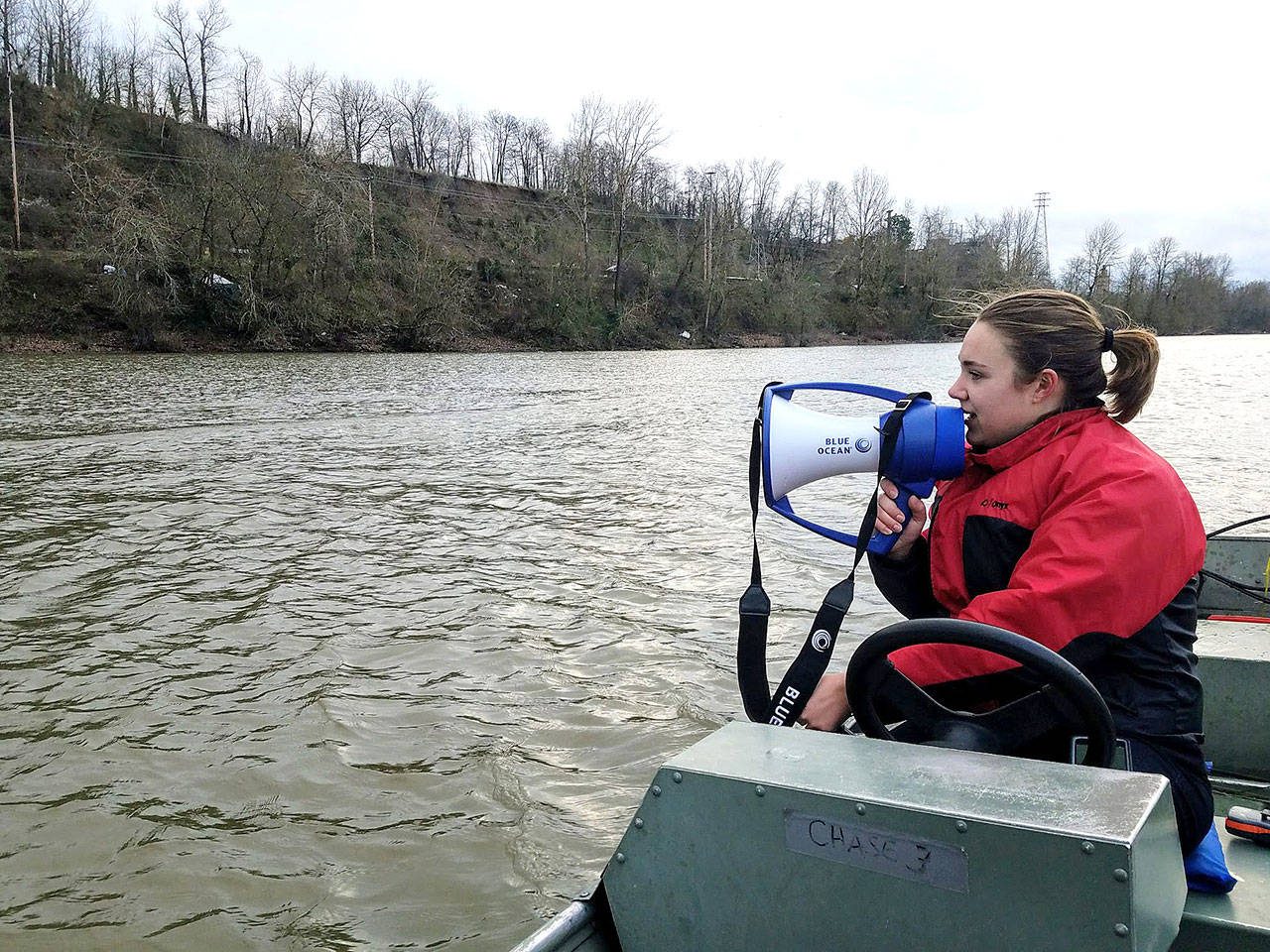By Jeff Hoyt
For The Beachcomber
When Sarah Deal had dinner in September with Vashon Island Rowing Club coaches Ben Steele and Maya Krah to consider an offer to coach the men and women of VIRC’s Masters team, she asked to take the weekend to think about it.
“I didn’t want to rush to a decision,” said Deal, “but after visiting the island, I pretty much knew I wanted to be here.”
On Vashon-Maury Island, the one team sport that continues to attract older adults is rowing. The average age of the 56 Masters rowers of VIRC is just a few gray hairs shy of 60.
At just 26 years old, Deal says working with athletes twice (or thrice) her age comes naturally.
“I was an only child so I always hung out with adults,” she said. “That was always more fun for me.”
More than that, the adults she hung out with gave her a unique perspective on competitive athletics. Growing up in Eugene, Ore. — known internationally for track & field — Deal’s father Lance is a four-time Olympian and silver medal winner in the hammer throw. The senior Deal has held the American record for almost as long as his daughter has been alive.
Deal’s father also coached at the University of Oregon for almost a decade, but it didn’t give her the collegiate coaching bug.
“There was so much bureaucracy and focus on scholarships,” Deal said. “I’m not big on setting people’s goals for them. I love to help you achieve what you want to achieve, but I don’t want to tell you who you should be.”
Deal started rowing during her senior year in high school and quickly drew interest from collegiate recruiters. Prior to rowing for Northeastern University in Boston and closer to home at Portland State, Deal was a teenage dressage horseback rider. She finds interesting parallels between the two pursuits.
“Horses can tell if you’re nervous and a boat can tell if you’re nervous,” Deal said. “In rowing, you have to be as precise as possible and stay relaxed, or you’ll transfer that nervousness to the boat.”
Similarly, she thinks dressage riders are uniquely suited for the transition to rowing.
“You’re just this small thing on top of this large animal and you are convincing it to be precise,” Deal said. “In a rowing shell, you are both the rider and the horse. You have to put in the energy and the power while keeping yourself in check and relaxed.”
Other athletes who tend to make smooth transitions to rowing include swimmers, gymnasts and dancers, according to Deal.
“These are all people who are in sports where a lot of power is involved along with full-body precision,” she said. “There just aren’t many sports as intricate and demanding as rowing that you can do for anywhere near as long.”
Deal believes a lot of injuries come from asymmetrical movement.
“In a rowing shell, if properly trained, you’re working from a stable platform that engages the core,” she said.
Another appeal for Masters rowers is the focus on breathing and heart rate.
“Rowers benefit from controlled breathing in a 3-to-1 rhythm, which is exactly what they teach in meditation,” she said. “When everyone is rowing together, it almost feels like the boat is breathing.”
In the same way that meditation is about being “present,” Deal learned from her father that in sports, all that matters is what is happening at any particular moment.
“Rowing teaches us to get rid of the extraneous signals. We can’t think about five strokes ago or five strokes from now and expect to take a good stroke in the middle. You only have this one stroke right now.”
Growing up around the many Olympic track & field athletes who have passed through Eugene over the years taught Deal the benefits of a measured approach to competition that transfers well to Masters rowing.
“I grew up around people who believed they could do anything and then felt obligated to do everything,” Deal said. “In the end, though, you learn to admit to yourself that small, beautiful goals are also sometimes worthwhile. I enjoy coaching Masters because rowing is a sport they can do for their whole lives.”
So why coach on Vashon when some of the best rowing in the world is across the water in Seattle?
“People here have chosen to live a more thoughtful, slower-paced life, which I love,” Deal said. “Vashon is Eugene with a moat. It’s smaller but there’s a very high concentration of good things.”



